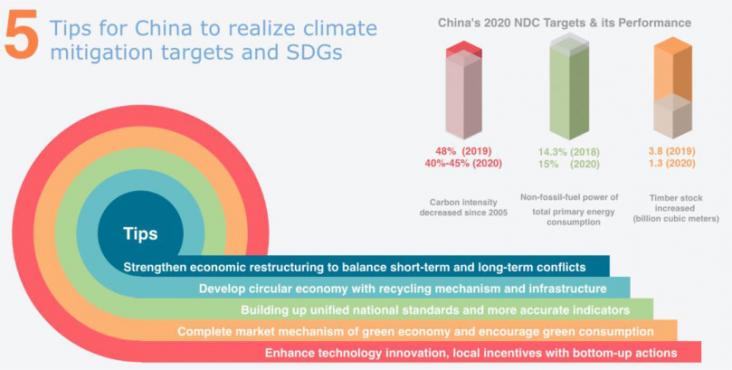This book chapter advances SDGs 3 and 17 by reviewing behavioral interventions and strategies for spoken communication for people with dementia and their communication partners.
This book chapter advances SDGs 3 and 17 by reviewing research on a range of rehabilitation programmes aiming to improve the functional independence of people with dementia, such as specialist-led or multimodal rehabilitation, cognitive rehabilitation, function-focused care, and reablement.

This paper summarized China's integrated actions (2015 onwards) that benefit both climate change mitigation and Sustainable Development Goals (SDGs).

By mapping the state of research within each SDG area, this report acknowledges the pivotal role research plays in tackling some of the world’s greatest challenges. It aims to better understand the research community’s global sustainable development efforts and assesses the progress made, as well as unmet research needs.

Over the past five years, we have used data and analytics to help the research and healthcare communities navigate the sea of research and to put collaboration, both interdisciplinary and international, at the heart of scientific progress on the SDGs. View findings for SDG 17.

Over the past five years, we have used data and analytics to help the research and healthcare communities navigate the sea of research and to put collaboration, both interdisciplinary and internati

Viral diseases transmitted by mosquitoes, known as arboviruses, pose a significant threat to human life and are a major burden on many health systems around the world.
This book chapter advances SDGs 3 and 17 by reviewing how to diagnosis mixed dementias.
This book chapter advances SDGs 3 and 17 by focusing on providing a brief overview of genes associated with sporadic (late-onset) Alzheimer's disease (AD). Despite decades of research, no current and reliable test is currently available for the diagnosis of AD. Genetic biomarkers are promising for both diagnostic tools and tailored profiling therapy.
This book chapter advances SDGs 3 and 17 by discussing available data regarding the effects of genetic variants on the clinical and pathological characteristics of “frontotemporal dementia” (FTD). The term “frontotemporal dementia” (FTD) defines a group of related diseases resulting from progressive degeneration of the temporal and frontal lobes. These areas play a significant role in decision-making, behavioral control, emotion, language, and motor functions.
